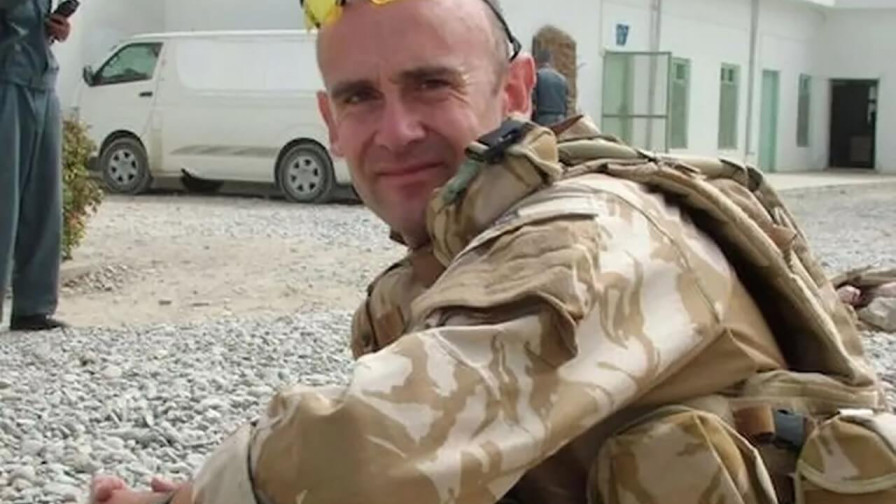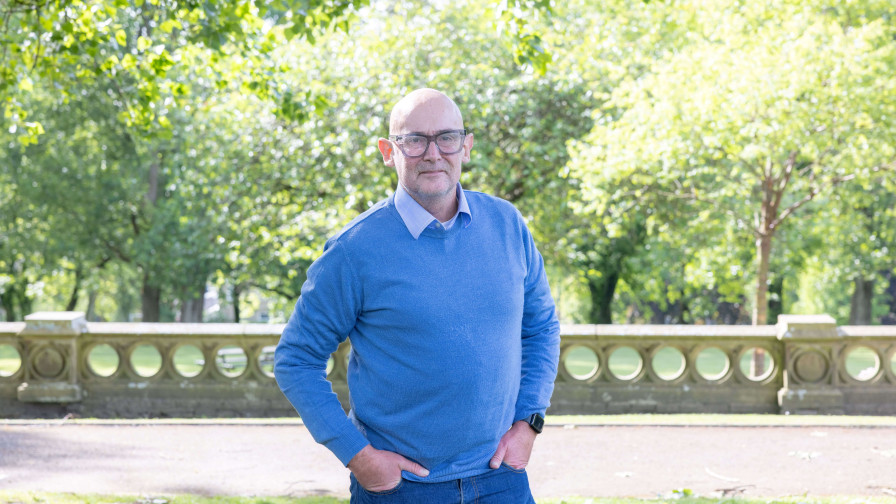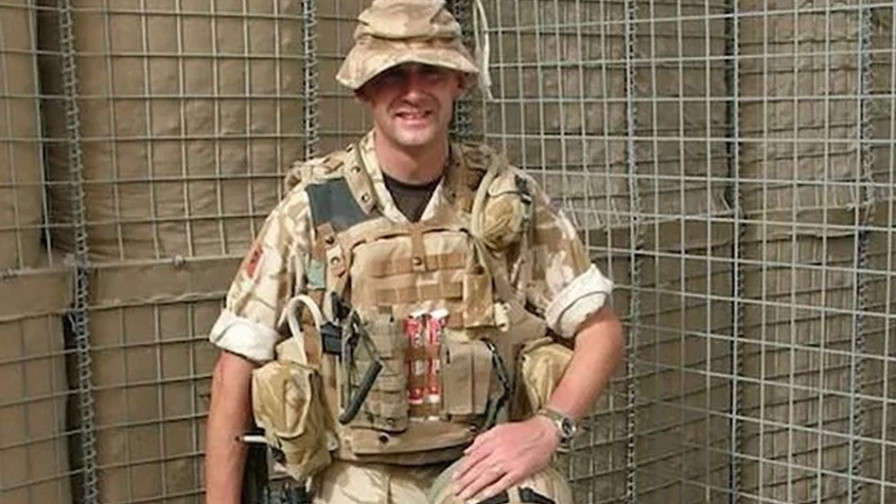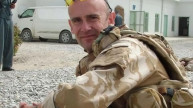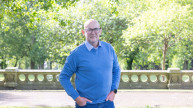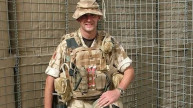Tony's Story
“When treatment finished, I no longer felt like a failure - I was proud of myself.”
Tony joined the Army to find adventure, but an incident in Iraq left him with feelings of guilt and anger. Years later after contemplating suicide, he called our Helpline and our specialist treatment helped him to live life to the full again.
Tony joined the Royal Military Academy Sandhurst at 21 to prove his family wrong that working class people couldn’t become Army officers. He received a commission into the Royal Military Police in 1994 and his plan was to break the mould of what was expected of him back home, see the world and test himself.
After starting with an initial four-year commission, Tony served for 23 years including in Iraq, Afghanistan and with the UN in Bosnia. “My role was very rewarding,” he says. “You were dealing with really difficult situations but also you were helping families in difficult times. One part of my role was dealing with when service personnel had been injured or fatally wounded, and we would support the families through that.”
In 2003 Tony was deployed to Iraq. “The incident that left me traumatised happened in Iraq,” he says. “It was really difficult. When we arrived, the initial fighting had finished, but there was still a lot going on out on the ground and it was a tricky time. It was quite violent and some of my colleagues were killed, which really tested me.
“I was meant to be in the vehicle they were in when they were killed, but I couldn’t make it as I had a meeting. I was in that meeting when we got told ‘you need to stop - something’s happened’. It left me feeling very, very guilty.”
Tony noticed something was different when he returned from Iraq. “It hit my confidence and I was left feeling that somehow I'd let people down,” he says. “I felt I’d made mistakes and hadn’t done the job properly out there. I had this word in my head of “weak” and that I was weak. I was having flashbacks but normalised it for quite a while and thought ‘this is this is just what I do’. You get on with it.”
He sought help whilst still in the Army but stopped the process when he discovered he was going to be taken off his duties. Army life carried on until Tony was medically discharged in 2017 for a separate issue, so he retrained as a teacher. However, he knew deep down that something wasn’t right.
“There was a nagging feeling, but I was very much head down getting into my new career,” he says. “I’d just started a new relationship with my now wife and I felt everything was going in the right direction. But deep down I knew I was still having these thoughts and still remembering vivid things. I knew something wasn't right, but I was ignoring it.
“I felt I'd let people down and that what I'd done in Iraq hadn't been enough,” he says. “I would think ‘if only I'd done X, people would still be alive’ and felt that I should have been dead with them.”
Struggling with suicidal thoughts and planning to take his own life, Tony realised he needed help. He saw a GP who added him to a “long” waiting list, but knowing he needed help sooner than that Tony called our Helpline in January 2024. After years of putting on a front, Tony laid himself bare to the clinician during his assessment. He was diagnosed with PTSD and had online Cognitive Behavioural Therapy and Eye Movement Desensitisation and Reprocessing (EMDR) sessions with one of our expert clinicians.
“Having treatment online worked really well for me, because I could fit it into my routine,” he says. “That was very important to me. It was easily accessible and I built up a really good rapport with my clinician, we hit it off and it didn’t matter that it was over a screen. When I was doing the eye movement treatment it worked well as I could use tools that were online, like following a dot on a screen.”
Through treatment Tony learned to normalise what he had experienced in Iraq. “I accepted what had happened,” he says.
"By the time we'd finished, I wasn't feeling that I was a failure. I was feeling quite proud of myself. While I feel terribly sad for the families who were involved and that will never change, I know I did a really good job. Everything I'd done where I thought I'd let people down; it was pretty much the opposite.”
Today, after treatment Tony no longer has flashbacks and is more confident in himself. “I can face day-to-day life without any nagging at the back of my head,” he says. “I don't get triggered in the same way, I’m not avoiding situations and I'm finding that I'm more engaged in life.
“I'm proud of myself.”
May 2025

